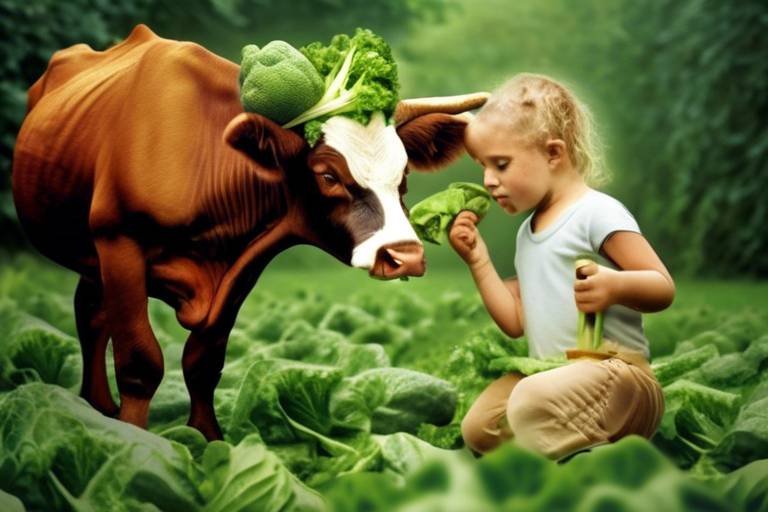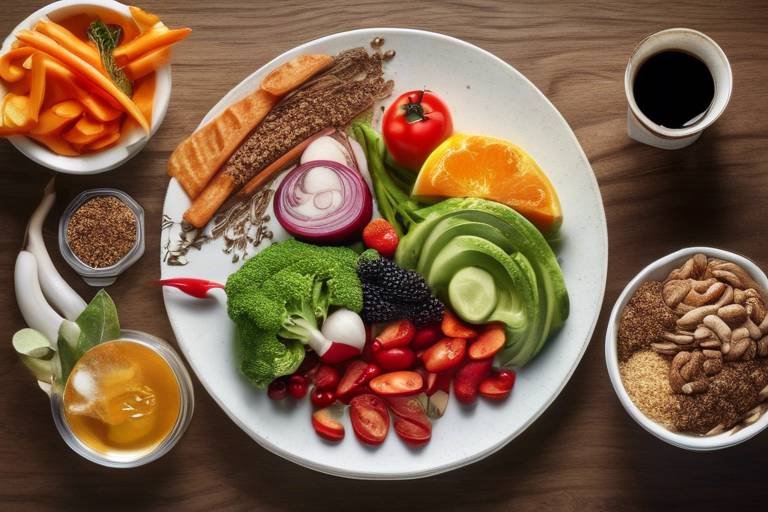Is Veganism the Key to Sustainable Living?
In today's world, where climate change and environmental degradation are pressing issues, many are questioning their lifestyle choices. One such choice that has gained significant attention is veganism. But is it truly the key to sustainable living? This article explores the intricate relationship between veganism and sustainability, examining its environmental impact, health benefits, ethical considerations, and how adopting a vegan lifestyle can contribute to a more sustainable future for our planet.
When we talk about sustainability, we cannot ignore the profound environmental impact of our food choices. Veganism significantly reduces our carbon footprints, conserving precious water and land resources. Animal agriculture is notorious for its high greenhouse gas emissions, while plant-based diets contribute to lower emissions and promote biodiversity. For instance, did you know that producing a kilogram of beef can emit more than 27 kilograms of CO2 equivalent? In contrast, a kilogram of lentils emits only about 0.9 kilograms of CO2 equivalent. This stark difference illustrates how shifting towards a plant-based diet can be a game-changer in combating climate change.
Adopting a vegan diet is not just beneficial for the planet; it also offers numerous health advantages. Research consistently shows that individuals who follow a vegan diet have lower risks of chronic diseases such as heart disease, diabetes, and certain types of cancer. But what exactly are these health benefits? Let's delve deeper.
Studies have shown that vegan diets can lower the risk of chronic diseases significantly. For example, a comprehensive study published in the Journal of the American Heart Association found that individuals following a plant-based diet had a 32% lower risk of heart disease. This reduction can be attributed to the absence of cholesterol and lower saturated fat intake in vegan diets. Moreover, the high fiber content in plant-based foods helps in maintaining healthy cholesterol levels and promoting heart health.
Fruits, vegetables, grains, and legumes are packed with essential nutrients that our bodies need to thrive. These foods are rich in vitamins, minerals, and antioxidants, which play a crucial role in maintaining overall health. For instance:
| Nutrient | Source | Health Benefits |
|---|---|---|
| Vitamin C | Citrus fruits | Boosts immune system |
| Iron | Legumes | Supports energy levels |
| Omega-3 fatty acids | Flaxseeds | Promotes heart health |
Many individuals find it easier to maintain a healthy weight on a vegan diet. This is largely due to the lower calorie density of plant-based foods compared to meat and dairy products. Vegan diets tend to be high in fiber, which promotes satiety and helps control appetite. Think of it this way: when you fill your plate with vibrant vegetables and whole grains, you're not just nourishing your body; you're also making it easier to manage your weight effectively.
Beyond health and environmental concerns, veganism is often motivated by ethical considerations regarding animal welfare. The moral implications of animal agriculture cannot be overlooked. By choosing plant-based alternatives, individuals can contribute to a more humane world, reducing the suffering of animals and promoting a compassionate lifestyle.
The livestock industry is a major contributor to climate change, accounting for approximately 14.5% of global greenhouse gas emissions. By adopting a vegan lifestyle, individuals can significantly mitigate their climate impact and promote environmental sustainability. But how does this work?
A vegan diet requires fewer natural resources compared to meat-based diets. For example, it takes about 1,800 gallons of water to produce a single pound of beef, while only 39 gallons are needed for a pound of vegetables. This highlights the importance of resource conservation in the fight against climate change. By choosing plant-based foods, we can help conserve water, land, and energy resources.
Veganism encourages agricultural practices that are more sustainable. Plant-based farming can help restore ecosystems and promote biodiversity. By reducing the demand for animal products, we can shift agricultural practices towards more sustainable and regenerative methods, ultimately fostering a healthier planet.
- Is a vegan diet healthy? Yes, a well-planned vegan diet can provide all the nutrients your body needs and may reduce the risk of chronic diseases.
- Can I get enough protein on a vegan diet? Absolutely! There are plenty of plant-based protein sources like beans, lentils, tofu, and quinoa.
- Is veganism expensive? Veganism can be budget-friendly, especially when focusing on whole foods and seasonal produce.

The Environmental Impact of Veganism
When we talk about veganism, we often think about the delicious plant-based meals and the ethical choices behind them. However, the impact of adopting a vegan lifestyle reaches far beyond our plates. In fact, choosing a vegan diet can lead to a significant reduction in our carbon footprints, which is crucial in the fight against climate change. By eliminating animal products from our diets, we can contribute to a healthier planet.
The livestock industry is one of the largest contributors to greenhouse gas emissions. According to various studies, it accounts for nearly 14.5% of all human-induced emissions. This is comparable to the emissions produced by all the world’s cars, planes, and trains combined! By shifting to a vegan diet, individuals can help reduce these emissions significantly. For instance, a study published by the University of Oxford found that if everyone stopped eating meat and cheese, global emissions could be reduced by 70% by 2020.
Moreover, veganism promotes the conservation of vital resources such as water and land. The production of meat requires approximately 15,000 liters of water for just one kilogram of beef, while plant-based foods like vegetables and grains require significantly less. To put this into perspective, a vegan diet can save around 1,100 gallons of water per day compared to a meat-based diet. This conservation is essential as we face increasing water scarcity issues globally.
Another critical aspect of veganism's environmental impact is its role in promoting biodiversity. Animal agriculture often leads to deforestation and habitat destruction as forests are cleared to make way for pastures and feed crops. By choosing plant-based diets, we can help protect these ecosystems. A shift towards veganism encourages farming practices that are more sustainable and less harmful to wildlife. For example, plant-based farming can restore soil health, improve water retention, and enhance the overall quality of the environment.
To summarize, the environmental impact of veganism is profound. It not only helps in reducing greenhouse gas emissions but also conserves water and land resources while promoting biodiversity. The choices we make in our diets can have a ripple effect on the planet. By adopting a vegan lifestyle, we can take a significant step towards a more sustainable future.
- Does a vegan diet really help the environment? Yes, a vegan diet significantly reduces greenhouse gas emissions, conserves water, and promotes biodiversity.
- What are the main environmental benefits of veganism? The main benefits include lower carbon footprints, reduced water usage, and less land required for food production.
- Can veganism help combat climate change? Absolutely! By reducing the demand for animal products, we can mitigate the effects of climate change.
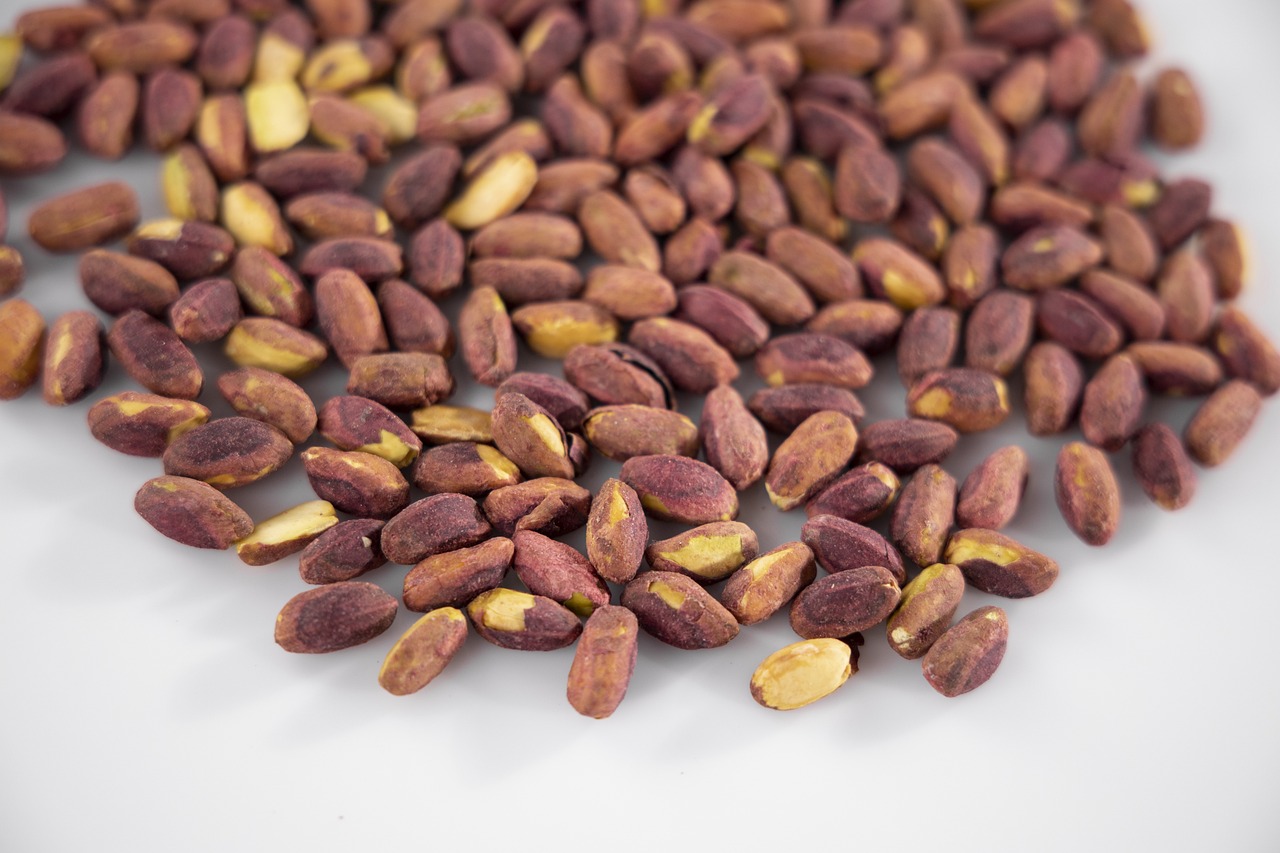
Health Benefits of a Vegan Diet
Adopting a vegan diet is not just a trend; it's a lifestyle choice that brings a myriad of health benefits to those who embrace it. Imagine transforming your plate into a vibrant canvas filled with colorful fruits, vegetables, grains, and legumes. Each bite not only nourishes your body but also plays a significant role in enhancing your overall well-being. But what exactly makes veganism such a powerhouse for health? Let's dive into the details!
One of the most compelling reasons to consider a vegan diet is its potential to lower the risk of chronic diseases. Research has shown that individuals who follow plant-based diets often experience a reduced incidence of conditions such as heart disease, diabetes, and certain types of cancer. This is largely due to the abundance of antioxidants, vitamins, and minerals found in plant foods that combat inflammation and promote heart health. For instance, a study published in the Journal of the American Heart Association found that those who adhered to a vegan diet had a significantly lower risk of heart disease compared to their meat-eating counterparts.
It's fascinating to consider how our food choices can directly impact our health. The evidence supporting the health benefits of veganism is not just anecdotal; it is backed by scientific research. For example, a meta-analysis revealed that vegans had a 32% lower risk of developing heart disease. This is attributed to lower cholesterol levels and blood pressure, which are often seen in those who consume less saturated fat found in animal products. Furthermore, the high fiber content in plant-based diets aids in digestion and helps maintain a healthy weight, which is crucial for preventing chronic illnesses.
When it comes to nutrition, plant-based foods are a treasure trove of essential nutrients. A well-planned vegan diet is rich in:
- Fiber: Vital for digestive health.
- Vitamins: Such as vitamin C and E, which are powerful antioxidants.
- Minerals: Including iron, calcium, and magnesium, which are essential for bone health.
- Phytochemicals: Compounds found in plants that have anti-inflammatory properties.
These nutrients work synergistically to enhance your immune system and promote overall vitality. It's like giving your body a natural shield against diseases!
Another remarkable benefit of a vegan diet is its potential for weight management. Many people find it easier to maintain a healthy weight when they switch to a plant-based lifestyle. The reason? Vegan foods are generally lower in calories and high in nutrients, making it simpler to enjoy satisfying meals without the excess calories that often come with meat and dairy products. Studies indicate that vegans tend to have a lower body mass index (BMI) than those who consume animal products. This isn't just about aesthetics; maintaining a healthy weight significantly reduces the risk of various health issues, including type 2 diabetes and hypertension.
In conclusion, the health benefits of a vegan diet are profound and multifaceted. By choosing plant-based foods, you are not only nourishing your body but also setting the stage for a healthier future. The transition to veganism may seem daunting at first, but with the right knowledge and resources, it can lead to a vibrant, energetic, and disease-free life.
1. Can I get enough protein on a vegan diet?
Absolutely! There are plenty of plant-based sources of protein, including beans, lentils, tofu, quinoa, and nuts. With a little planning, you can easily meet your protein needs.
2. Will I miss out on essential nutrients?
Not if you plan your diet wisely! A well-balanced vegan diet can provide all the essential nutrients your body needs. Just be mindful of vitamin B12, iron, and omega-3 fatty acids, which may require supplementation or careful food choices.
3. Is veganism expensive?
It can be as affordable or as expensive as you make it. Whole foods like grains, beans, and seasonal vegetables are often cheaper than processed vegan foods. Cooking at home can save you money while ensuring you eat healthily.
4. How do I start a vegan diet?
Start by incorporating more plant-based meals into your diet gradually. Experiment with new recipes, explore local farmers’ markets, and educate yourself on nutrition to make the transition smoother.
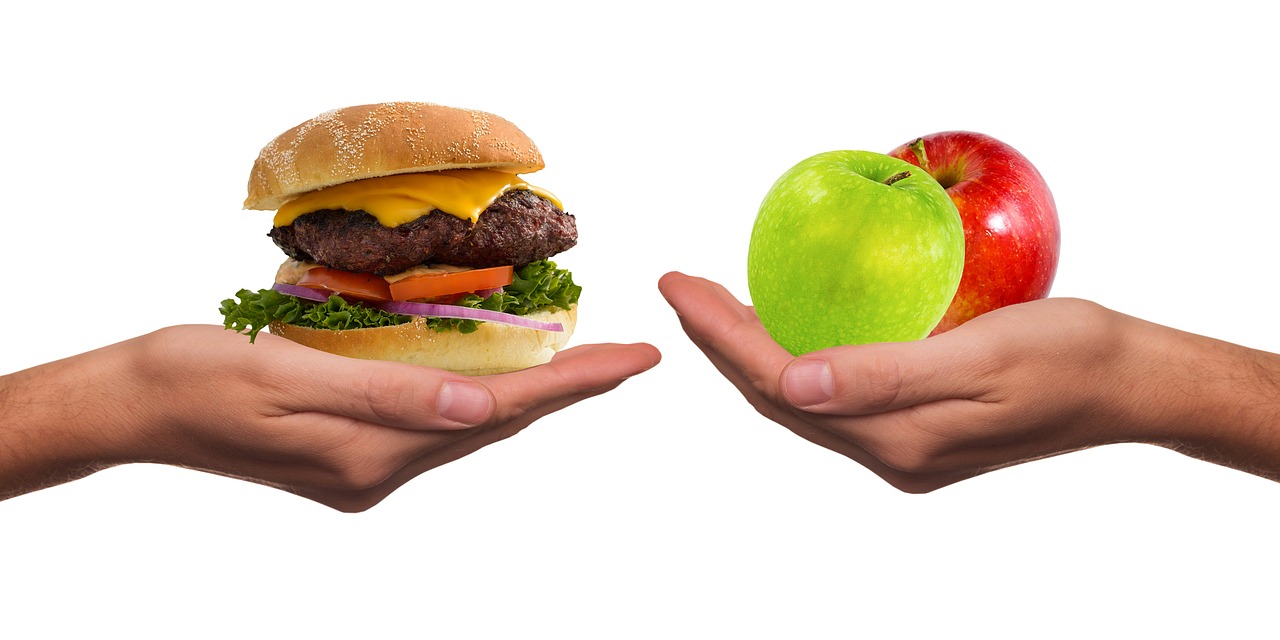
Reducing Chronic Disease Risks
When it comes to our health, the choices we make about what we eat can have profound effects, particularly in the realm of chronic diseases. Adopting a vegan diet is more than just a trendy lifestyle choice; it can be a powerful strategy for reducing the risk of serious health issues. Studies have shown that plant-based diets are linked to lower rates of heart disease, type 2 diabetes, and certain types of cancer. But how does this work?
The secret lies in the abundance of nutrients found in plant-based foods. Fruits, vegetables, whole grains, and legumes are packed with vitamins, minerals, and antioxidants that play a crucial role in maintaining our health. For instance, the high fiber content in these foods helps regulate blood sugar levels and lowers cholesterol. This is essential for heart health, as it reduces the risk of heart disease—a leading cause of death worldwide.
Moreover, a vegan diet is typically lower in saturated fats and cholesterol, which are commonly found in animal products. This reduction can lead to improved heart health and a decreased risk of cardiovascular diseases. Research indicates that vegans tend to have lower blood pressure and a healthier body mass index (BMI), both of which are significant factors in preventing chronic illnesses.
| Disease | Risk Reduction | Evidence |
|---|---|---|
| Heart Disease | 32% lower risk | American Journal of Clinical Nutrition |
| Type 2 Diabetes | 23% lower risk | Diabetes Care |
| Certain Cancers | 15% lower risk | Journal of the American Dietetic Association |
In addition to these benefits, a vegan diet encourages a more diverse intake of foods, which can lead to better overall nutrient profiles. For example, many plant-based foods are rich in phytochemicals, which have been shown to have anti-inflammatory properties. Chronic inflammation is a silent contributor to many diseases, including cancer and autoimmune disorders. By consuming a variety of colorful fruits and vegetables, you’re not just adding flavor to your meals; you’re arming your body with the tools it needs to fight off disease.
But let’s not forget about the psychological aspect of eating. Choosing a vegan lifestyle can also promote a healthier relationship with food. Many people report feeling more energized and less sluggish when they switch to a plant-based diet. This increased energy can inspire more physical activity, which is another key factor in reducing the risk of chronic diseases. It’s a beautiful cycle: eat well, feel good, move more, and live longer!
So, if you’re considering a shift to veganism, know that you’re not just making a choice for the planet, but for your health as well. The evidence is compelling, and the benefits are numerous. It’s a delicious way to invest in your well-being and give your body the best chance at a long, healthy life.
- Can I get enough protein on a vegan diet? Yes! There are plenty of plant-based protein sources like lentils, chickpeas, quinoa, and tofu.
- Will I miss out on essential nutrients? As long as you eat a varied diet, you can meet all your nutritional needs with plant-based foods.
- Is it difficult to transition to a vegan lifestyle? It can be challenging at first, but there are many resources, recipes, and communities to help you along the way.

Plant-Based Foods and Nutrients
When we talk about plant-based foods, we're diving into a treasure trove of nutrients that can significantly enhance our health. These foods are not just alternatives to meat; they are power-packed sources of essential vitamins, minerals, and antioxidants that fuel our bodies and support our well-being. From vibrant fruits to hearty legumes, each category offers unique benefits that contribute to a balanced diet.
For instance, fruits and vegetables are loaded with vitamins such as A, C, and K, along with dietary fiber that aids digestion. They also contain antioxidants that help combat oxidative stress in our bodies. A colorful plate is not just visually appealing; it’s a sign of a nutrient-rich meal. It's like painting a masterpiece on your plate, where each color represents a different health benefit!
Legumes, such as beans, lentils, and chickpeas, are excellent sources of protein and iron, making them perfect for those who may be concerned about getting enough protein on a vegan diet. These foods also provide complex carbohydrates that offer sustained energy, helping to keep you feeling full and satisfied throughout the day. Imagine your body as a high-performance vehicle; legumes are the premium fuel that keeps it running smoothly and efficiently.
Whole grains, including quinoa, brown rice, and oats, are another vital component of a plant-based diet. They are rich in fiber, which not only aids in digestion but also helps regulate blood sugar levels. Consuming whole grains is like giving your body a gentle, steady stream of energy rather than a quick spike followed by a crash. This steady energy release keeps your metabolism humming and your energy levels stable.
Moreover, nuts and seeds are fantastic sources of healthy fats, protein, and essential nutrients like vitamin E and magnesium. A handful of almonds or a sprinkle of chia seeds can elevate your meals while providing a satisfying crunch. Think of them as the secret ingredient that transforms a simple dish into something extraordinary!
To summarize the incredible benefits of plant-based foods, let’s take a look at the following table that highlights some key nutrients found in various plant-based food categories:
| Food Category | Key Nutrients | Health Benefits |
|---|---|---|
| Fruits | Vitamins A, C, K, Fiber | Boosts immunity, aids digestion, promotes skin health |
| Vegetables | Vitamins, Minerals, Antioxidants | Reduces disease risk, improves overall health |
| Legumes | Protein, Iron, Fiber | Supports muscle health, maintains energy levels |
| Whole Grains | Fiber, B Vitamins | Regulates blood sugar, supports digestive health |
| Nuts & Seeds | Healthy Fats, Protein, Vitamin E | Promotes heart health, provides energy |
In conclusion, a plant-based diet is not just about eliminating animal products; it's about embracing a vibrant array of foods that nourish our bodies. Each bite of fruits, vegetables, legumes, whole grains, and nuts contributes to a healthier lifestyle and a more sustainable planet. So, why not embark on this flavorful journey and discover the amazing benefits that plant-based foods have to offer?
- What are the main nutrients found in a vegan diet? A vegan diet is rich in vitamins, minerals, fiber, protein, and healthy fats. Key nutrients include vitamin B12, iron, calcium, and omega-3 fatty acids.
- Can I get enough protein from a vegan diet? Yes! Plant-based sources like legumes, nuts, seeds, and whole grains provide ample protein to meet your dietary needs.
- How can I ensure I'm getting all essential nutrients? By eating a varied diet that includes a wide range of fruits, vegetables, whole grains, legumes, nuts, and seeds, you can cover your nutritional bases.
- Is it difficult to transition to a vegan diet? It can be challenging at first, but starting with small changes and exploring new recipes can make the transition enjoyable and rewarding.

Weight Management and Veganism
When it comes to weight management, many individuals find that adopting a vegan diet can be a game changer. Why is that? Well, the secret lies in the natural composition of plant-based foods. Vegan diets are typically rich in fruits, vegetables, whole grains, and legumes, all of which are not only low in calories but also high in fiber. This combination helps to create a feeling of fullness, reducing the likelihood of overeating. Imagine trying to fill up on a plate of leafy greens versus a greasy burger; the greens are going to leave you feeling satisfied without the added calories!
Moreover, research has shown that individuals following a vegan diet often consume fewer calories overall. A study published in the Journal of the American Dietetic Association found that vegans tend to have a lower body mass index (BMI) compared to those who consume meat. This could be attributed to the fact that plant-based diets are naturally lower in fat and higher in nutrient density. To illustrate, consider the following comparison:
| Food Type | Calories per 100g | Fat Content |
|---|---|---|
| Avocado | 160 | 15g |
| Chicken Breast | 165 | 3.6g |
| Quinoa | 120 | 1.9g |
| Broccoli | 34 | 0.4g |
As you can see from the table, while chicken breast and avocado are higher in calories, they also provide essential nutrients. However, foods like quinoa and broccoli are lower in calories and fat, making them excellent choices for weight management. This leads to the next benefit of a vegan diet: the ability to enjoy larger portions without the guilt. You can fill your plate with a colorful array of vegetables and grains, all while keeping your caloric intake in check.
Another factor contributing to weight management in a vegan diet is the elimination of processed meats and high-calorie animal products. Many people are surprised to learn that by simply cutting out these items, they can significantly reduce their calorie consumption. Plus, with the increasing availability of delicious vegan alternatives, transitioning to a plant-based diet has never been easier or more satisfying.
However, it’s essential to remember that not all vegan foods are created equal. While some plant-based products can be quite healthy, others may be heavily processed and loaded with sugars and fats. Therefore, it’s crucial to focus on whole, minimally processed foods to achieve the best results for weight management. By making informed choices and prioritizing a variety of nutrient-dense foods, vegans can easily maintain a healthy weight while enjoying a diverse and flavorful diet.
So, is veganism the answer to your weight management struggles? For many, the answer is a resounding yes! With the right approach, a vegan diet can not only help you shed those extra pounds but also lead to a healthier, more fulfilling lifestyle. If you’re considering making the switch, remember that it’s all about balance and making informed food choices. Happy eating!
- Can I get enough protein on a vegan diet? Yes! There are plenty of plant-based protein sources such as lentils, chickpeas, tofu, and quinoa.
- Will I lose weight if I switch to veganism? Many people find that they lose weight on a vegan diet, but it ultimately depends on your overall calorie intake and food choices.
- Is a vegan diet expensive? It can be cost-effective, especially if you focus on whole foods and cook at home rather than purchasing pre-packaged vegan products.
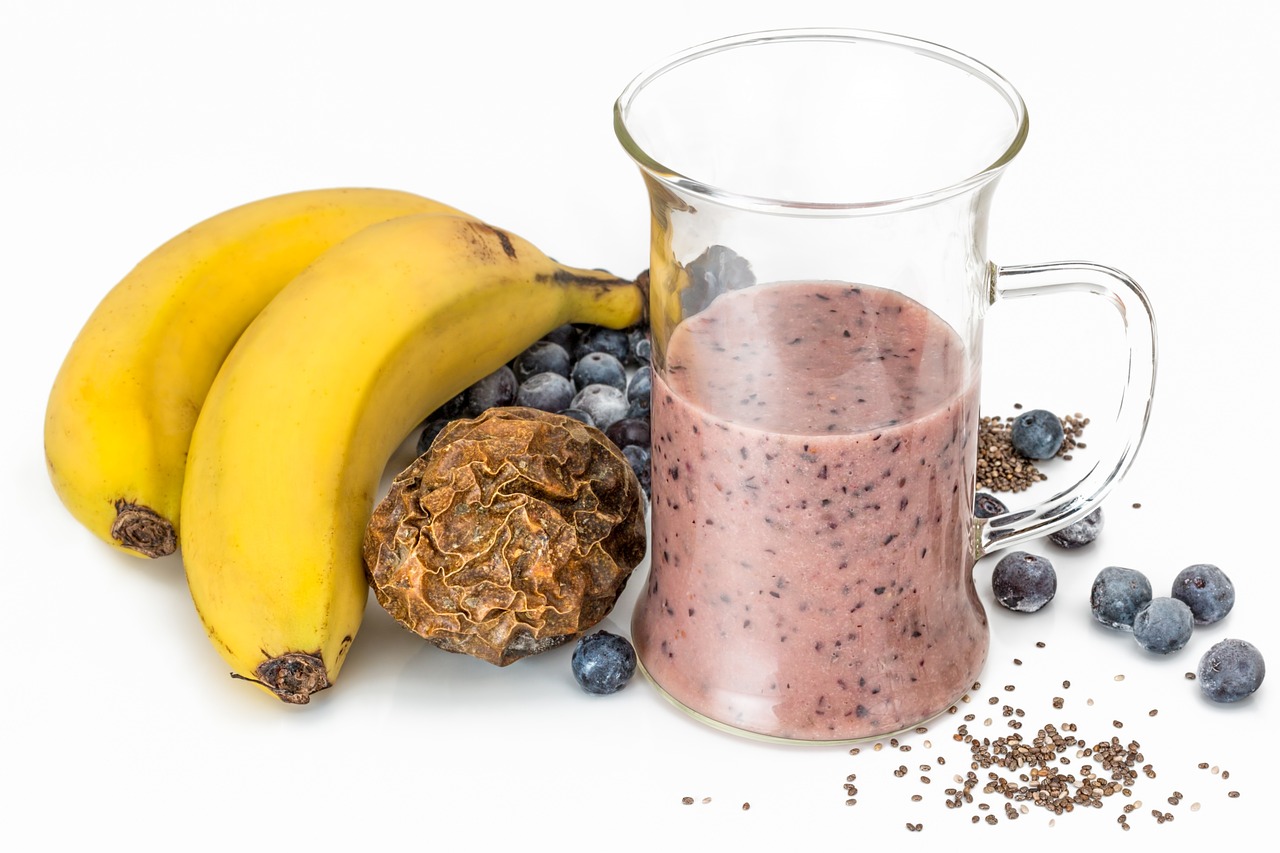
Ethical Considerations of Veganism
The ethical considerations surrounding veganism are profound and multifaceted. At its core, veganism is not just a dietary choice; it's a lifestyle commitment that reflects a deep respect for all sentient beings. Many individuals are drawn to veganism because of their concerns regarding animal welfare. The reality is that animal agriculture is often associated with significant suffering, exploitation, and inhumane treatment of animals. By choosing a vegan lifestyle, individuals take a stand against these practices, advocating for a world where animals are treated with compassion and respect.
When we think about the ethics of consuming animal products, it raises important questions: Is it justifiable to cause suffering to another living being for our taste preferences? What are the moral implications of contributing to industries that prioritize profit over the welfare of animals? These questions compel us to reflect on our values and consider the impact of our choices on the lives of animals. Many vegans argue that the ability of animals to feel pain and emotion should grant them certain rights, including the right to live free from harm.
Moreover, the ethical implications of veganism extend beyond animal welfare. The environmental consequences of animal agriculture also raise significant moral concerns. The livestock industry is a leading cause of deforestation, water depletion, and greenhouse gas emissions. By adopting a vegan diet, individuals can reduce their ecological footprint and contribute to a more sustainable planet. This dual focus on animal rights and environmental stewardship creates a compelling ethical argument for veganism.
In addition to the direct ethical implications, many people find that embracing a vegan lifestyle aligns with broader principles of social justice. The resources used to raise livestock could be redirected to feed the world's hungry population. By choosing plant-based foods, we can help alleviate global hunger and promote equitable access to nutrition. This perspective encourages a holistic view of veganism, where ethical considerations encompass not only animal welfare but also human rights and environmental justice.
Ultimately, the journey toward veganism is deeply personal and often involves a complex interplay of beliefs, values, and emotions. It challenges us to reconsider our relationship with food and the impact of our choices on the world around us. The ethical considerations of veganism invite us to engage in meaningful conversations about compassion, sustainability, and the kind of world we wish to create for future generations.
- What are the main ethical reasons for choosing veganism? Many people choose veganism for animal welfare, environmental concerns, and social justice.
- How does veganism relate to animal rights? Veganism advocates for the rights of animals to live free from harm and exploitation.
- Can veganism help combat climate change? Yes, adopting a vegan diet can significantly reduce greenhouse gas emissions associated with animal agriculture.
- Is it possible to get all the necessary nutrients on a vegan diet? Absolutely! With careful planning, a vegan diet can provide all essential nutrients.

Veganism and Climate Change
Climate change is one of the most pressing issues of our time, and the impact of our dietary choices cannot be overstated. The livestock industry is a major contributor to greenhouse gas emissions, accounting for approximately 14.5% of global emissions, according to the Food and Agriculture Organization (FAO). By adopting a vegan lifestyle, individuals can significantly reduce their carbon footprint and contribute to a more sustainable future.
When we think about the environmental impact of our food choices, it’s essential to recognize the resources that go into producing meat and dairy. For instance, it takes about 1,800 gallons of water to produce just one pound of beef, while producing a pound of tofu requires only around 300 gallons. This stark contrast highlights how a plant-based diet can lead to substantial water conservation, ultimately benefiting our planet.
Furthermore, the land required for livestock grazing and feed production is immense. The United Nations estimates that 70% of agricultural land is used for animal farming, which contributes to deforestation, loss of biodiversity, and soil degradation. By shifting towards a vegan diet, we can help preserve natural habitats and promote biodiversity. A plant-based diet requires significantly less land, allowing for more sustainable agricultural practices that focus on growing crops directly for human consumption.
One of the most compelling arguments for veganism in the context of climate change is its ability to mitigate the effects of this global crisis. Transitioning to a plant-based diet not only reduces greenhouse gas emissions but also encourages sustainable agricultural practices. For example, regenerative farming techniques, which are often associated with veganism, can restore soil health, improve water retention, and enhance carbon sequestration. This means that by choosing vegan options, we are not just reducing harm but actively contributing to the healing of our planet.
To further illustrate the impact of veganism on climate change, consider the following table that compares the environmental impact of various diets:
| Diet Type | Greenhouse Gas Emissions (kg CO2e per person per year) | Water Use (liters per person per year) | Land Use (hectares per person per year) |
|---|---|---|---|
| Omnivore | 3,000 | 50,000 | 1.5 |
| Vegetarian | 1,800 | 30,000 | 1.0 |
| Vegan | 1,000 | 20,000 | 0.5 |
This table clearly shows that a vegan diet is associated with the lowest levels of greenhouse gas emissions, water use, and land use. By making conscious dietary choices, we can collectively combat climate change and work towards a sustainable future.
In conclusion, embracing veganism is not just a personal choice; it’s a powerful statement against climate change. By reducing our reliance on animal products, we can significantly lessen our environmental impact and promote a healthier planet for future generations. So, are you ready to take the plunge into a vegan lifestyle and become a part of the solution?
- Does veganism really help combat climate change? Yes, adopting a vegan diet can significantly reduce greenhouse gas emissions and resource consumption, thus helping to mitigate climate change.
- What are the main environmental benefits of a vegan diet? A vegan diet conserves water, reduces land use, and lowers carbon footprints compared to meat-based diets.
- Can I get enough nutrients on a vegan diet? Absolutely! A well-planned vegan diet can provide all the essential nutrients your body needs.
- Is veganism the only solution to climate change? While it's not the sole solution, it is a crucial component of a broader strategy to address climate change.

Reducing Resource Consumption
When we think about our daily food choices, it’s easy to overlook the profound impact they have on our planet's resources. Adopting a vegan diet is not just a personal choice; it’s a powerful way to contribute to the conservation of our planet's precious resources. Did you know that producing animal-based foods requires significantly more water, land, and energy compared to plant-based foods? In fact, the livestock sector is responsible for 70% of global freshwater use and occupies about 30% of the Earth’s land surface. This is staggering when you consider that a simple shift to a vegan diet can drastically reduce these numbers.
Let’s break it down a bit more. For every pound of beef produced, approximately 1,800 gallons of water are consumed. In contrast, a pound of tofu requires only about 300 gallons. This stark difference highlights how a plant-based diet can lead to substantial water savings. Not only does this conserve water, but it also helps in reducing the strain on our water systems, which are already under pressure in many parts of the world.
Furthermore, the land required for livestock farming is immense. A single cow needs around 2 acres of land to graze, while the same area can produce enough fruits and vegetables to feed dozens of people. This means that by choosing a vegan lifestyle, we are not only saving land but also allowing it to be used for more sustainable agricultural practices. By reducing the demand for animal products, we can free up land that can be restored to its natural state, promoting biodiversity and healthier ecosystems.
To illustrate this point further, consider the following table that compares the resources needed for different diets:
| Food Type | Water Usage (gallons per pound) | Land Usage (acres per pound) |
|---|---|---|
| Beef | 1,800 | 2 |
| Pork | 600 | 1.2 |
| Chicken | 500 | 0.4 |
| Tofu | 300 | 0.2 |
| Vegetables (average) | 200 | 0.1 |
As you can see, the resource consumption associated with plant-based foods is significantly lower than that of meat. This is not just about numbers; it’s about the future of our planet. By choosing veganism, we can collectively reduce our resource consumption and promote a more sustainable way of living. It’s like trading in a gas-guzzling car for a sleek, energy-efficient model—both help you get from point A to point B, but one does it with far less impact on the environment.
In conclusion, the choice to embrace a vegan lifestyle is a step towards reducing our resource consumption and making a meaningful difference in the fight against climate change. Every meal is an opportunity to vote for a healthier planet, and by opting for plant-based foods, we can contribute to a sustainable future for generations to come.
- What are the main benefits of a vegan diet? A vegan diet can lead to lower environmental impact, improved health, and ethical treatment of animals.
- Can I get enough protein on a vegan diet? Yes! There are plenty of plant-based protein sources such as lentils, chickpeas, quinoa, and tofu.
- How does veganism help combat climate change? By reducing the demand for meat and dairy, we can lower greenhouse gas emissions and conserve natural resources.
- Is veganism suitable for everyone? While many people thrive on a vegan diet, it's essential to ensure that nutritional needs are met, especially for children and pregnant women.
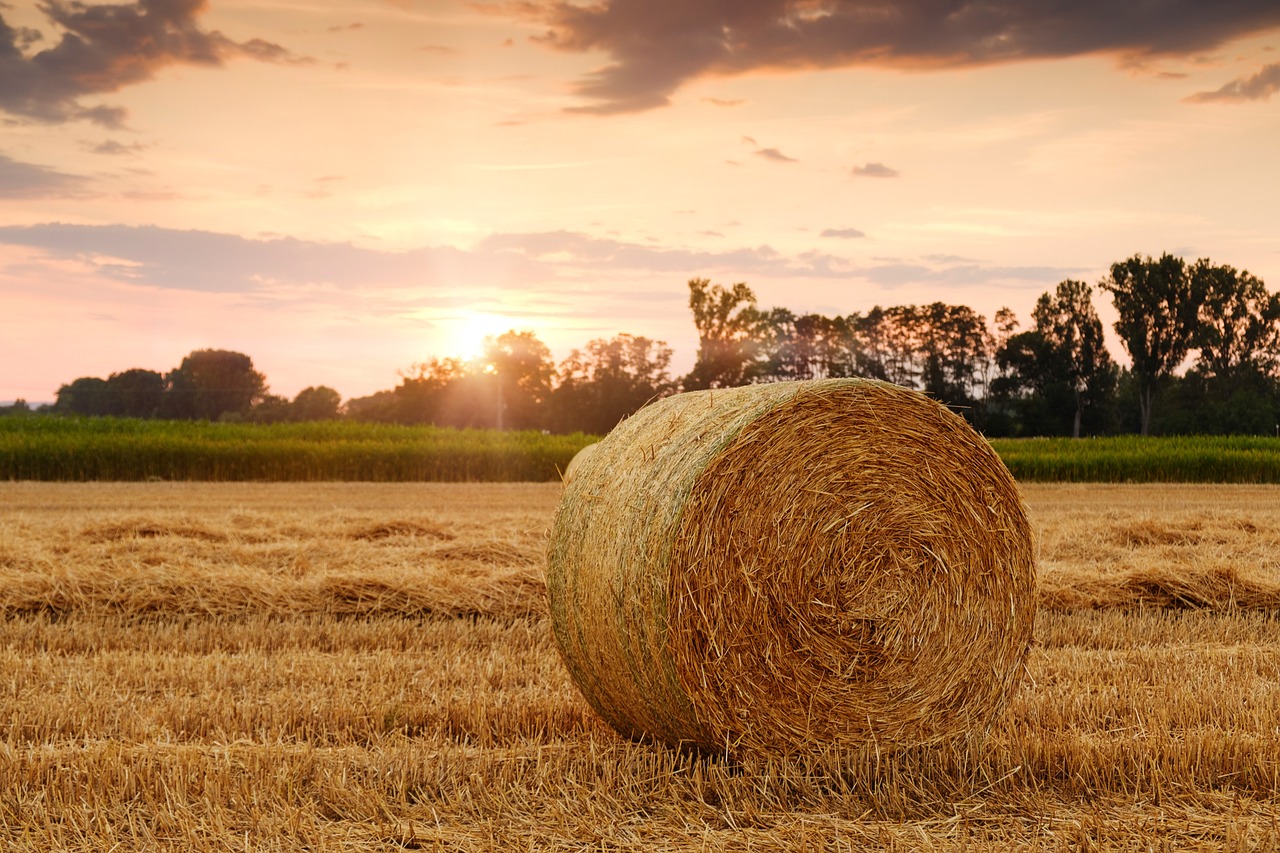
Promoting Sustainable Agriculture
When we talk about sustainable agriculture, we’re diving into a realm that not only focuses on the quantity of food produced but also emphasizes the quality of our farming practices. Veganism plays a pivotal role in this conversation. By choosing a plant-based diet, we are not just making a personal health choice; we are actively supporting agricultural methods that are kinder to our planet. Think about it: every time you opt for a veggie burger over a beef patty, you're casting a vote for farming practices that prioritize environmental health and animal welfare.
One of the most significant ways veganism promotes sustainable agriculture is through the reduction of land use. Traditional livestock farming requires vast amounts of land for grazing and growing feed, which often leads to deforestation and habitat destruction. In contrast, plant-based farming typically requires much less land to produce the same amount of calories. This means we can preserve natural habitats and promote biodiversity. For instance, a study revealed that if the world shifted to a vegan diet, we could free up to 75% of the current agricultural land, which could then be restored to its natural state.
Moreover, the shift towards veganism encourages practices such as crop rotation and diversified farming systems. These methods not only improve soil health but also enhance resilience against pests and diseases, reducing the need for chemical fertilizers and pesticides. By focusing on a variety of crops, farmers can create a more balanced ecosystem, which benefits both the environment and the community. For example, intercropping legumes with grains can help fix nitrogen in the soil, reducing the need for synthetic fertilizers.
Veganism also supports the local economy. When consumers choose plant-based products, they often turn to local farmers who practice sustainable agriculture. This not only reduces the carbon footprint associated with transporting food long distances but also strengthens community ties and supports local economies. Buying from local farmers who prioritize sustainable methods means you’re investing in a future where food is produced responsibly and ethically.
In summary, embracing a vegan lifestyle is more than just a dietary change; it’s a powerful statement in favor of sustainable agriculture. By reducing land use, promoting diverse farming practices, and supporting local economies, veganism paves the way for a healthier planet. As we continue to face the challenges of climate change and environmental degradation, the question isn't whether we can afford to go vegan, but rather can we afford not to?
- What is sustainable agriculture? Sustainable agriculture refers to farming practices that meet current food needs without compromising the ability of future generations to meet their own needs.
- How does veganism contribute to sustainability? Veganism reduces the demand for resource-intensive animal farming, promotes biodiversity, and encourages sustainable farming practices.
- Can a vegan diet provide all necessary nutrients? Yes, a well-planned vegan diet can provide all essential nutrients, including protein, vitamins, and minerals.
- What are some sustainable farming practices? Sustainable farming practices include crop rotation, intercropping, organic farming, and permaculture.
Frequently Asked Questions
- What are the environmental benefits of adopting a vegan diet?
Adopting a vegan diet can significantly reduce your carbon footprint. By eliminating animal products, you help decrease greenhouse gas emissions, conserve water, and protect land resources. It's like trading in a gas-guzzler for a sleek, eco-friendly car—you're making a choice that benefits the planet!
- Can a vegan diet provide all the necessary nutrients?
Absolutely! A well-planned vegan diet can offer all the essential nutrients your body needs. Foods like fruits, vegetables, grains, and legumes are packed with vitamins, minerals, and proteins. Think of it as filling your plate with a rainbow of colors that not only look good but also nourish you from the inside out.
- How does veganism contribute to weight management?
Many people find it easier to maintain a healthy weight on a vegan diet due to its focus on whole, plant-based foods that are generally lower in calories and higher in fiber. It's like switching from heavy, greasy fast food to fresh, vibrant salads—your body feels lighter and more energized!
- What ethical considerations are associated with veganism?
Veganism is often rooted in ethical concerns regarding animal welfare. By choosing plant-based options, you're taking a stand against animal cruelty and the harsh realities of factory farming. It's a way to align your eating habits with your values, making a compassionate choice for our furry friends.
- How does veganism help combat climate change?
The livestock industry is a major contributor to climate change, and by adopting a vegan lifestyle, you can help mitigate its impacts. It's like taking a small but powerful step towards a greener future—every meal counts in the fight against climate change!
- What role does sustainable agriculture play in veganism?
Veganism promotes sustainable agricultural practices that focus on restoring ecosystems and enhancing biodiversity. By supporting plant-based farming, you're contributing to a system that respects the environment and encourages healthy soil, clean water, and thriving wildlife.

